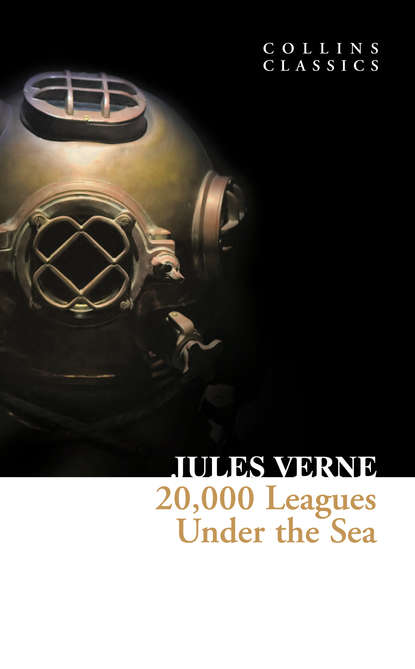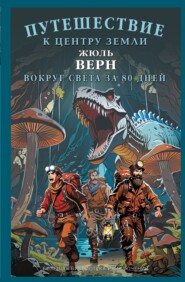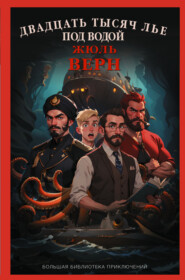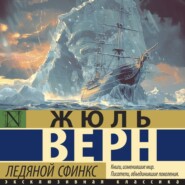По всем вопросам обращайтесь на: info@litportal.ru
(©) 2003-2024.
✖
20,000 Leagues Under The Sea
Настройки чтения
Размер шрифта
Высота строк
Поля
‘But if they do not exist, Mr Obstinate, how do you account for the Scotia’s accident?’
‘Because it is—’ began Ned hesitatingly.
‘Go on!’
‘Because – it is not true!’ answered the Canadian, repeating, without knowing it, a celebrated answer of Arago.
But this answer proved the obstinacy of the harpooner and nothing else. That day I did not press him further. The accident to the Scotia was undeniable. The hole existed so really that they were obliged to stop it up, and I do not think that the existence of a hole can be more categorically demonstrated. Now the hole had not made itself, and since it had not been done by submarine rocks or submarine machines, it was certainly due to the perforating tool of an animal.
Now, in my opinion, and for all the reasons previously deduced, this animal belonged to the embranchment of the vertebrata, to the class of mammals, to the group of pisciforma, and, finally, to the order of cetaceans. As to the family in which it took rank, whale, cachalot, or dolphin, as to the genus of which it formed a part, as to the species in which it would be convenient to put it, that was a question to be elucidated subsequently. In order to solve it the unknown monster must be dissected; to dissect it, it must be taken, to take it, it must be harpooned – which was Ned Land’s business – to harpoon it, it must be seen – which was the crew’s business – and to see it, it must be encountered – which was the business of hazard.
CHAPTER 5 At Random (#ulink_9645d34d-b5ec-539b-893b-bca72472d625)
The voyage of the Abraham Lincoln for some time was marked by no incident. At last a circumstance happened which showed off the wonderful skill of Ned Land and the confidence that might be placed in him.
On the 30th of June, the frigate, being then off the Falkland Islands, spoke some American whalers, who told us they had not met with the narwhal. But one of them, the captain of the Munroe, knowing that Ned Land was on board the Abraham Lincoln, asked for his help in capturing a whale they had in sight. Captain Farragut, desirous of seeing Ned Land at work, allowed him to go on board the Munroe, and fortune favoured our Canadian so well, that instead of one whale he harpooned two with a double blow, striking one right in the heart, and capturing the other after a pursuit of some minutes.
Certainly if the monster ever had Ned Land to deal with I would not bet in its favour.
On the 6th of July, about 3 p.m., we doubled, fifteen miles to the south, the solitary island to which some Dutch sailors gave the name of their native town, Cape Horn. The next day the frigate was in the Pacific.
‘Keep a sharp look-out!’ cried all the sailors.
Both eyes and telescopes, a little dazzled certainly by the thought of 2000 dollars, never had a minute’s rest. Day and night they observed the surface of the ocean; and even nyctalops, whose faculty of seeing in the darkness increased their chances fifty per cent., would have had to keep a sharp look-out to win the prize.
I, myself, who thought little about the money, was not, however, the least attentive on board. I was constantly on deck, giving but few minutes to my meals, and indifferent to either rain or sunshine. Now leaning over the sea on the forecastle, now on the taffrail, I devoured with greedy eyes the soft foam which whitened the sea as far as those eyes could reach! How many times have I shared the emotion of the officers and crew when some capricious whale raised its black back above the waves! The deck was crowded in a minute. The companion ladders poured forth a torrent of officers and sailors, each with heaving breast and troubled eye watching the cetacean. I looked and looked till I was nearly blind, whilst Conseil, always calm, kept saying to me, –
‘If monsieur did not keep his eyes open so much he would see more.’
But vain excitement! The Abraham Lincoln would modify her speed, run down the animal signalled, which always turned out to be a simple whale or common cachalot, and disappeared amidst a storm of execration.
Ned Land always showed the most tenacious incredulity; he even affected not to examine the seas except during his watch, unless a whale was in sight; and yet his marvellous power of vision might have been of great service. But eight hours out of the twelve the obstinate Canadian read or slept in his cabin.
‘Bah!’ he would answer; ‘there is nothing, M. Aronnax; and even if there is an animal, what chance have we of seeing it? Are we not going about at random? I will admit that the beast has been seen again in the North Pacific, but two months have already gone by since that meeting, and according to the temperament of your narwhal it does not like to stop long enough in the same quarter to grow mouldy. It is endowed with a prodigious faculty of moving about. Now, you know as well as I do, professor, that Nature makes nothing inconsistent, and would not give to a slow animal the faculty of moving rapidly if it did not want to use it. Therefore, if the beast exists, it is far enough off now.’
I did not know what to answer to that. We were evidently going along blindly. But how were we to do otherwise? Our chances, too, were very limited. In the meantime no one yet doubted of our success, and there was not a sailor on board who would have bet against the narwhal and against its early apparition.
We were at last on the scene of the last frolics of the monster; and the truth was, no one lived really on board. The entire crew were under the influence of such nervous excitement as I could not give the idea of. They neither ate nor slept. Twenty times a day some error of estimation, or the optical delusion of a sailor perched on the yards, caused intolerable frights; and these emotions, twenty times repeated, kept us in a state too violent not to cause an early reaction.
And, in fact, the reaction was not slow in coming. For three months – three months, each day of which lasted a century – the Abraham Lincoln ploughed all the waters of the North Pacific, running down all the whales signalled, making sharp deviations from her route, veering suddenly from one tack to another, and not leaving one point of the Chinese or Japanese coast unexplored. And yet nothing was seen but the immense waste of waters – nothing that resembled a gigantic narwhal, nor a submarine islet, nor a wreck, nor a floating reef, nor anything at all supernatural.
The reaction, therefore, began. Discouragement at first took possession of all minds, and opened a breach for incredulity. A new sentiment was experienced on board, composed of three-tenths of shame and seven-tenths of rage. They called themselves fools for being taken in by a chimera, and were still more furious at it. The mountains of arguments piled up for a year fell down all at once, and all every one thought of was to make up the hours of meals and sleep which they had so foolishly sacrificed.
With the mobility natural to the human mind, they threw themselves from one excess into another. The warmest partisans of the enterprise became finally its most ardent detractors. The reaction ascended from the depths of the vessel, from the coal-hole, to the officers’ ward-room, and certainly, had it not been for very strong determination on the part of Captain Farragut, the head of the frigate would have been definitely turned southward.
However, this useless search could be no further prolonged. No crew of the American navy had ever shown more patience or zeal; its want of success could not be imputed to it. There was nothing left to do but to return.
A representation in this sense was made to the commander. The commander kept his ground. The sailors did not hide their dissatisfaction, and the service suffered from it. I do not mean that there was revolt on board, but after a reasonable period of obstinacy the commander, like Columbus before him, asked for three days’ patience. If in three days the monster had not reappeared, the man at the helm should give three turns of the wheel, and the Abraham Lincoln should make for the European seas.
Two days passed. The frigate kept up steam at half-pressure. Large quantities of bacon were trailed in the wake of the ship, to the great satisfaction of the sharks. The frigate lay to, and her boats were sent in all directions, but the night of the 4th of November passed without unveiling the submarine mystery.
Japan lay less than 200 miles to leeward. Eight bells had just struck as I was leaning over the starboard side. Conseil, standing near me, was looking straight in front of him. The crew, perched in the ratlins, were keeping a sharp look-out in the approaching darkness. Officers with their night-glasses swept the horizon.
Looking at Conseil, I saw that the brave fellow was feeling slightly the general influence – at least it seemed to me so. Perhaps for the first time, his nerves were vibrating under the action of a sentiment of curiosity.
‘Well, Conseil,’ said I, ‘this is your last chance of pocketing 2000 dollars.’
‘Will monsieur allow me to tell him that I never counted upon the reward, and if the Union had promised 100,000 dollars it would never be any the poorer.’
‘You are right, Conseil. It has been a stupid affair, after all. We have lost time and patience, and might just as well have been in France six months ago.’
‘Yes, in monsieur’s little apartments, classifying monsieur’s fossils, and monsieur’s babiroussa would be in its cage in the Jardin des Plantes, attracting all the curious people in Paris.’
‘Yes, Conseil, and besides that we shall get well laughed at.’
‘Certainly,’ said Conseil tranquilly. ‘I think they will laugh at monsieur. And I must say—’
‘What, Conseil?’
‘That it will serve monsieur right! When one has the honour to be a savant like monsieur, one does not expose—’
Conseil did not finish his compliment. In the midst of general silence Ned Land’s voice was heard calling out, –
‘Look out, there! The thing we are looking for is on our weather beam!’
CHAPTER 6 With all Steam on (#ulink_ce117f5a-2397-5281-aa5b-211b4877e91d)
At this cry the entire crew rushed towards the harpooner. Captain, officers, masters, sailors, and cabin-boys, even the engineers left their engines, and the stokers their fires. The order to stop her had been given, and the frigate was only moving by her own momentum. The darkness was then profound, and although I knew the Canadian’s eyes were very good, I asked myself what he could have seen, and how he could have seen it. My heart beat violently.
At two cables’ length from the Abraham Lincoln on her starboard quarter, the sea seemed to be illuminated below the surface. The monster lay some fathoms below the sea, and threw out the very intense but inexplicable light mentioned in the reports of several captains. This light described an immense and much-elongated oval, in the centre of which was condensed a focus the over-powering brilliancy of which died out by successive gradations.
‘It is only an agglomeration of phosphoric particles,’ cried one of the officers.
‘No, sir,’ I replied with conviction. ‘Never did pholas or salpae produce such a light as that. That light is essentially electric. Besides – see! look out! It moves – forward – on to us!’
A general cry rose from the frigate.
‘Silence!’ called out the captain. ‘Up with the helm! Reverse the engines!’
The frigate thus tried to escape, but the supernatural animal approached her with a speed double her own.
Stupefaction, more than fear, kept us mute and motionless. The animal gained upon us. It made the round of the frigate, which was then going at the rate of fourteen knots, and enveloped her with its electric ring like luminous dust. Then it went two or three miles off, leaving a phosphoric trail like the steam of an express locomotive. All at once, from the dark limits of the horizon, where it went to gain its momentum, the monster rushed towards the frigate with frightful rapidity, stopped suddenly at a distance of twenty feet, and then went out, not diving, for its brilliancy did not die out by degrees, but all at once, as if turned off. Then it reappeared on the other side of the ship, either going round her or gliding under her hull. A collision might have occurred at any moment, which might have been fatal to us.
I was astonished at the way the ship was worked. She was being attacked instead of attacking; and I asked Captain Farragut the reason. On the captain’s generally impassive face was an expression of profound astonishment.
‘M. Aronnax,’ he said, ‘I do not know with how formidable a being I have to deal, and I will not imprudently risk my frigate in the darkness. We must wait for daylight, and then we shall change parts.’
‘You have no longer any doubt, captain, of the nature of the animal?’

















